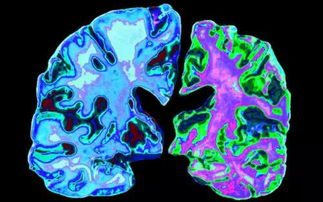Researchers at the university of California have shown that the type of bacteria living in the gut can influence the development of Alzheimer's symptoms in mice. Studies have shown that long-term antibiotic treatment can slow the growth of amyloid plaques in the brains of mice by altering their gut microbiota to reduce inflammation.
The bacterial community that lives in the gastrointestinal tract -- the intestinal microbiome is usually harmless, but because it affects the activity of the body's immune system, these bacteria can affect a wide range of diseases, such as the brain.
Professor Sangram s. Sisodia, director of the centre for molecular neurobiology at the university of California, explains: "recent evidence suggests that gut bacteria may play an important role in a variety of neurological diseases, including Parkinson's and alzheimer's."
Alzheimer's disease is characterized by the formation of amyloid plaques and the activation of microglia, the immune cells present in the brain. These cells may help clear amyloid plaques, but their activation may also exacerbate the disease by causing neuroinflammation.
The gut microbiota of alzheimer's patients has changed, and Sisodia and his colleagues have previously reported that gut bacteria may affect the development of these symptoms in rodents.Long-term antibiotic treatment limited the formation of amyloid plaques and reduced microglial cell activation in mice expressing mutant proteins associated with familial alzheimer's disease.

To show that the improvement in Alzheimer's symptoms was caused by changes in the gut microbiota, the researchers transplanted untreated mouse feces into animals treated with antibiotics. This process restores the intestinal microbiota and leads to the formation of amyloid plaques and increased microglia activation.
Sisodia and his colleagues found that long-term antibiotic treatment altered the gut bacteria of mice in different ways. Changes in the microbiota in mice led their immune systems to produce more proinflammatory agents that might affect microglia activation.
"Our study shows that antibiotic-mediated disruption of gut microbiota has a selective and gender-specific effect on amyloid plaque formation and microglial cell activity in the brain, "Sisodia said. We now want to see if these results can be attributed to changes in any particular type of bacteria.







